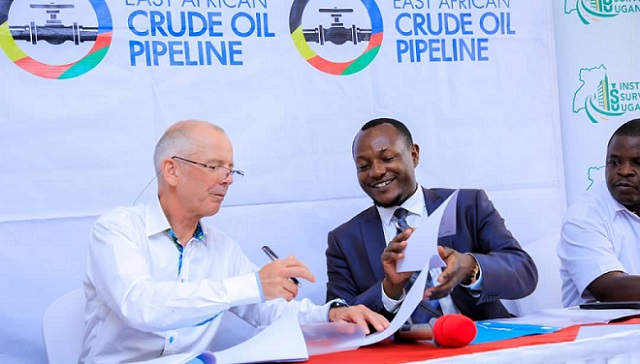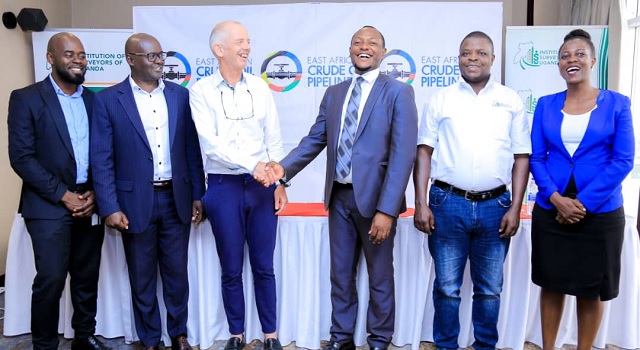
Kampala, Uganda | THE INDEPENDENT | The East African Crude Oil Pipeline (EACOP) company hopes to start construction works in the second quarter of this year when the compensation and resettlement exercise is expected to end. This will be almost a year since the company applied for the construction license from the government in July last year.
The process was delayed by the complexities in settling the Project Affected Persons, PAPs. Honey Malinga, the Ag. the Director of Petroleum in the Ministry of Energy and Mineral Development, says that the application would be processed within 180 days “in accordance with the law.”
He has urged the company to pay attention and quickly address the persistent concerns raised by the communities, local leadership, government, and civil society. These issues, which include the valuation of the land, and protection of cultural sites, among others, have persisted beyond the 180 days, thus delaying the project, according to Martin Tiffen, the Managing Director at EACOP.
He, however, says that three-quarters of the PAPs have already signed agreements and are being compensated, while the other processes are ongoing including the procurement of contractors.

He was speaking at the signing of a Memorandum of Understanding between EACOP and the Institution of Surveyors of Uganda, ISU, aimed at enhancing the skills of surveyors through training and other opportunities.
The construction license enables the company to kick-start the development of the 1,443-kilometer heated and underground pipeline from Kabaale in Hoima to Chongoleani in Tanga, Tanzania. On the part of the company, Tiffen said that they have all the logistics in place needed to start the physical construction works.
He, however, says that there were unforeseen situations that required to be settled before compensation proceeded, including settling all grievances like where the PAPs are not satisfied. The land while some landowners cannot be traced, there are others who die, but their dependents (heirs) did not have legally acceptable proof of ownership, and they had to go through a lengthy process by acquiring letters of administration.
Tiffen says that some situations required to repeat the valuation exercise, all leading to more delays but adds that this exercise should end in the first half of this year.
In their view as surveyors, Dr. Nathan Kibwami, the ISU President said the concerns and grievances by the affected communities in many cases also led to increased costs of the properties to be valued because of the process of settling them. He said that the important thing is that there are grievance settlement mechanisms that have been applied to see the process continue.
One bottleneck that the government and the EACOP company had to deal with was the protest by communities in Mubende. The residents petitioned Stanbic and Absa banks against funding the EACOP and related projects until their concerns had been responded to. The NGO, Strategic Response on Environment Conservations, specifically opposed compulsory land acquisition and that the policy was taking away their rights.
In Mubende alone, about 800 people are affected, by the pipeline which will also run through Kikuube, Kakumiro, Kyankwanzi, Gomba, Sembabule, Lwengo, Kyotera, and Rakai, before crossing into Tanzan, affecting a total of 13,158 people. Tiffen says that the Mubende conflict was resolved and the process has been commended.
The MOU with the surveyors’ body will see the surveyors and the students of surveying from the universities of Makerere, Ndeje, and Kyambogo given more competence and internships for a three-year period every year.
@EACOP_ and the Institution of Surveyors of Uganda (ISU) have partnered to provide training and internship opportunities to young Ugandans interested in the oil and gas industry. A step towards a brighter future for the sector and building Ugandan expertise! #oilandgas #training pic.twitter.com/JHd0M3xNA8
— EACOP (@EACOP_) January 11, 2023
*****
URN
 The Independent Uganda: You get the Truth we Pay the Price
The Independent Uganda: You get the Truth we Pay the Price



